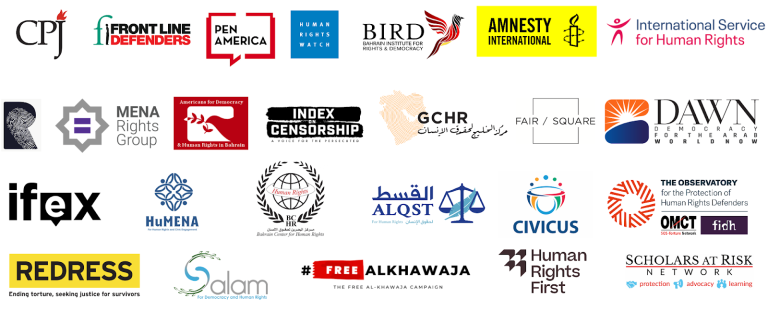16 December 2015 – NGOs today issued a joint-statement against the use of the death penalty in Bahrain and called on the Gulf kingdom to commute all standing sentences. The 17 NGOs include the World Coaltion Against the Death Penalty, an alliance of more than 150 NGOs, bar associations, local authorities and unions against capital punishment.
The statement comes a month after Bahrain’s highest appeals court rejected the final appeal of death row inmates and torture victims Mohammed Ramadan and Husain Moosa. The decision finalizes their convictions: absent a royal pardon, the government may carry out their execution at any time. Both defendants allege that they were tortured into confessing the crimes.
The Foreign and Commonwealth Office issued a statement following their sentence expressing concern over the death penalty’s use. It stated: “We support Bahrain’s right to bring to justice those responsible for the death of a police officer. But it is our longstanding policy to oppose the death penalty in all circumstances.
“For a strong ally of the United Kingdom to take these actions is appalling,” Sayed Ahmed Alwadaei, Director of Advocacy at BIRD. “The international community must act to demonstrate that abuse can never lead to convictions, that torture cannot be the gateway to execution.”
UN human rights bodies also expressed great concern over the torture and unfair trial of Husain Moosa and Mohammad Ramadan.
Security forces arrested Husain Ali Moosa in February 2014. Moosa states that security officers subjected him to physical torture and threats against his family until he confessed to carrying out a bombing attack. Moosa confessed as a result of the torture, but later recanted in front of the public prosecutor. After that, security forces tortured him further until he confessed again.
Mohammed Ramadan was arrested on 20 March 2014 without a warrant. During his initial detention, Ramadan states that security officers physically beat him all over his body. In order to stop the torture, Ramadan agreed to “confess to anything.” When Ramadan told a judge that he had been tortured into confessing, security officers placed him in solitary confinement and subjecting him to further beatings.
On 29 December 2014, a Bahraini criminal court sentenced Mohammed Ramadan and Husain Ali Moosa to death for their alleged involvement in a bomb explosion in al-Dair in February 2014. Read more about their cases here.
At the time of their initial sentencing, Ramadan’s lawyer, Mohammed al-Tajer, said, “Although the defendants emphatically claim that their confessions were extracted under torture, Bahrain’s courts failed to consider their claims or even open an investigation. Instead, the Bahraini judicial system its anti-terrorism law to justify the death penalty in a case with no concrete evidence of their guilt, but abundant evidence of ill-treatment, torture, and politically motivated charges.”
Read the full statement here: 2015.12.16 Death Penalty in Bahrain






